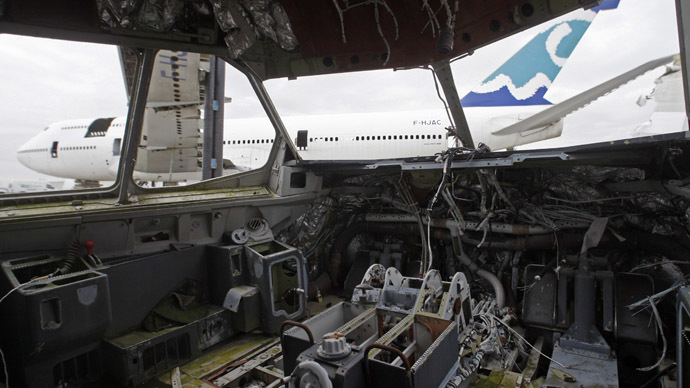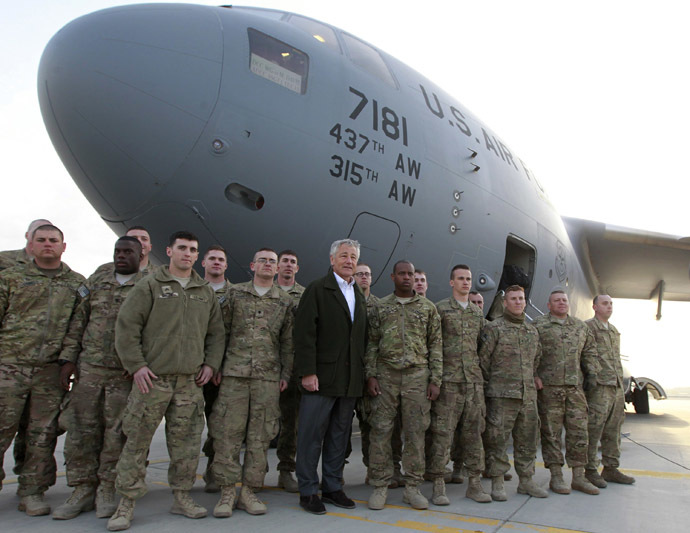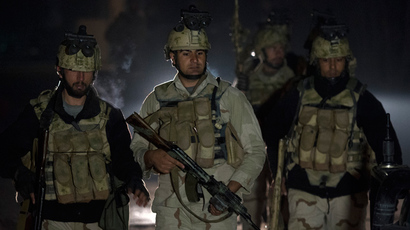US planes worth $500mn sold for scrap in Afghanistan – for just $32,000

A US watchdog is asking why 16 planes bought for the Afghan Air Force, costing almost $500 million, were turned into scrap metal valued at just $32,000. The government wants to know why hundreds of millions of taxpayers’ money were wasted on the project.
The military transport planes had been sitting at Kabul International Airport for years, before they were sent for scrap. John Sopko, the Special Inspector General for Afghanistan Reconstruction (SIGAR), wants to know why the money was wasted. According to Reuters, he had asked Air Force Secretary Deborah James to keep a record of all decisions concerning the destruction of the 16 C-27J planes.
Sopko also wants to know what will happen to another four transport planes currently stored at the US Air Force base in Ramstein, Germany.
"I am concerned that the officials responsible for planning and executing the scrapping of the planes may not have considered other possible alternatives in order to salvage taxpayer dollars," Sopko said.
The 20 planes were bought from Alenia, which is part of the Italian aircraft company Fimmeccanica SpA. However, according to a SIGAR letter sent to US Defense Secretary Chuck Hagel, the program was ended in March 2013, “after sustained, serious performance, maintenance, and spare parts problems and the planes were grounded,” ABC reported.
By January 2013, according to Sopko’s office, the aircraft were not airworthy and had only flown a total of 234 of the 4,500 hours required in nine months from January through September 2012. Spoko’s office also said that a further $200 million was needed to buy spare parts.

The Defense Logistics Agency was responsible for destroying the planes and Sopko now wants to know if any of the parts of the planes were sold before they were sent for scrap metal.
Major Bradlee Avots, a Pentagon spokesman, said that the 16 aircraft at Kabul International Airport had been destroyed “to minimize impact on drawdown of US Forces in Afghanistan,” and added that more information would be released after a review. The US government is currently in the process of scaling down from its present military personnel in Afghanistan of around 26,000 to a force of just under 10,000, who will be staying in a mainly advisory role.
Avots also said that the US Department of Defense and the US Air Force were still deciding what to do with the four aircraft in Germany.
SIGAR has been investigating possible wasteful spending on warplanes since the end of 2013, following questions raised by military officials and non-profit organizations.
Sopko has said that he does not know if wasteful plane procurement was due to any criminal malice or was just mismanagement, but that the “scrap metal” incident in Afghanistan was not an isolated case.
In June, despite Afghanistan being a landlocked country, a US government watchdog found that the Pentagon spent more than $3 million obtaining eight patrol boats that were never used. Additionally, the cost of each boat turned out to be about $375,000 – far more than the $50,000 they usually sell for in the US.
During his investigation, Sopko said that records related to the purchase and cancelation of the patrol boats were severely lacking, and his questions to the military have not resulted in adequate answers.
“The military has been unable to provide records that would answer the most basic questions surrounding this $3 million purchase,” his office told the Washington Post in a statement in June.















